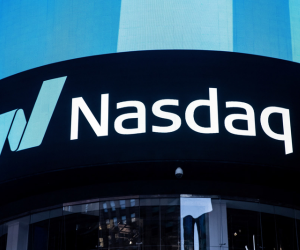Discover how NASDAQ transformed from an emerging market to the world's leading technology exchange through innovation and digital disruption.
Home
»
Investments
»
WHAT ARE SYNTHETIC INVESTMENT FUNDS
Synthetic investment funds are revolutionizing the financial market. Learn how these instruments work, how they compare with traditional funds, and their specific risks.

What Are Synthetic Investment Funds?
Ah, synthetic investment funds, those ingenious financial instruments that seem straight out of a science fiction novel. But are they really as exotic as they sound? At their core, these funds are a way to replicate the performance of an asset or index without having to physically own the underlying asset. Now, one might wonder, have those Wall Street magicians innovated once again just for the thrill of it?
How They Work
The core of a synthetic fund lies in financial derivatives. Yes, those dreaded contracts that make us sweat more than a marathon in the Sahara! The managers of these funds use futures contracts, options, or swaps, among others, to replicate the behavior of an index or asset. It's like having a ticket for the concert without having to endure the lines or crowds.
Advantages of Using Synthetic Funds
Flexibility: They provide easier access to markets that would otherwise be difficult or costly to reach.
Lower Costs: Without the need to acquire the underlying asset, certain fees and expenses associated with direct purchase are eliminated.
Precision: They offer an accurate replication of an index or asset with fewer logistical complications.
Practical Example
Imagine we're in the financial center of London. An investor wishes to replicate the FTSE 100 without dealing with the purchase of each individual stock. By acquiring a synthetic fund, this can be achieved through derivatives. It's like having your fish and chips served directly without having to go through the kitchen.
Key Differences
So, how do these funds compare to traditional ones? A million-dollar question, right? While traditional funds physically acquire the underlying assets, synthetics achieve their exposure through derivatives. This can lead to lower operational costs, but let's not get ahead of ourselves, nothing comes without its disclaimers and convoluted terms and conditions—do you think fund managers are magicians?
Potential Benefits
Global Access: Synthetic funds offer easy exposure to international markets, allowing you to invest in a distant country's index without ever setting foot on its soil.
Fast Settlement: Since there's no need to consolidate each physical purchase, transactions can occur more efficiently.
Market Example
On the New York Stock Exchange, it's possible to see a listing of funds indexed to the S&P 500. While a traditional fund would buy the 500 stocks, a synthetic fund would only need that enigmatic abracadabra known as a swap to replicate the index. It's like sending a stunt double and still receiving the applause.
Risk and Imperfect Replication
Not everything that glitters is gold, dear wolves of Wall Street. Using derivatives involves counterparty risk; if the other side of the agreement defaults, there could be significant losses. It's what our grandparents called putting all your eggs in one basket. And when used strategically, these replication instruments may not seem as infallible or magical as initially thought.
Regulatory Risk
The regulation of derivatives can change and is as volatile as a Sunday at Donald Trump's golf course. Changes in legislation can directly impact the performance of a synthetic fund, as if the referees change the rules mid-game, expecting the same outcome tends to be unrealistic.
Final Considerations
To quote Warren Buffet, "Only when the tide goes out do you discover who's been swimming naked." Synthetic investment funds offer exciting opportunities but require a clear understanding of their inherent risks. Make sure you know the rules of the game before playing. Do you dare to take the plunge or prefer to stay on the shore? The choice is yours.
YOU MAY ALSO BE INTERESTED




